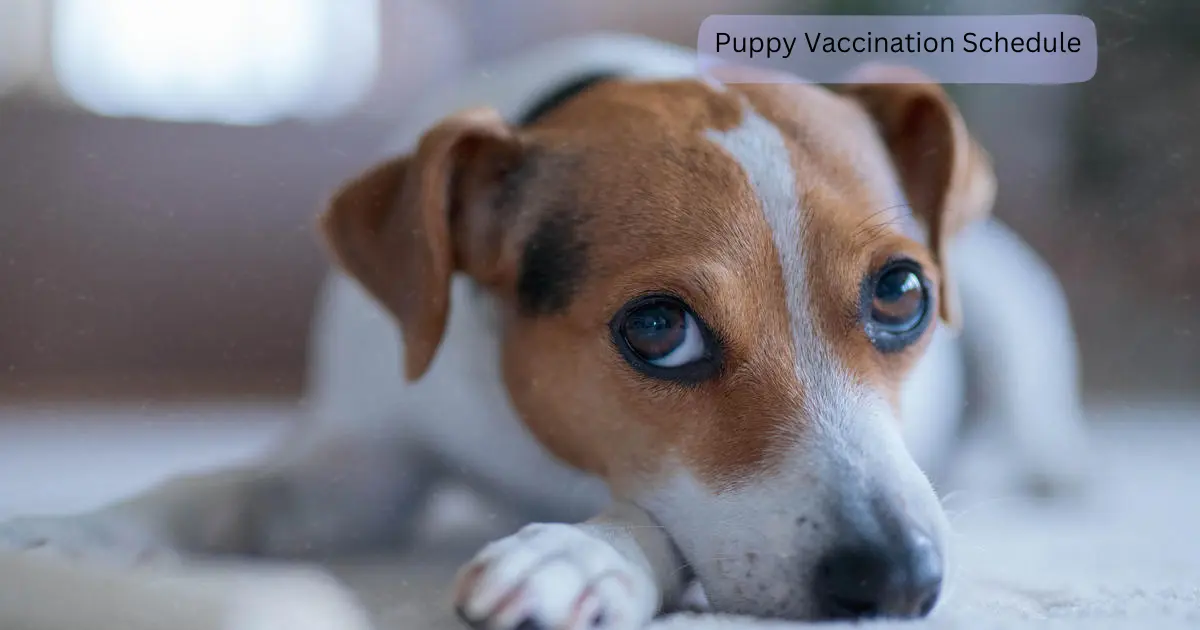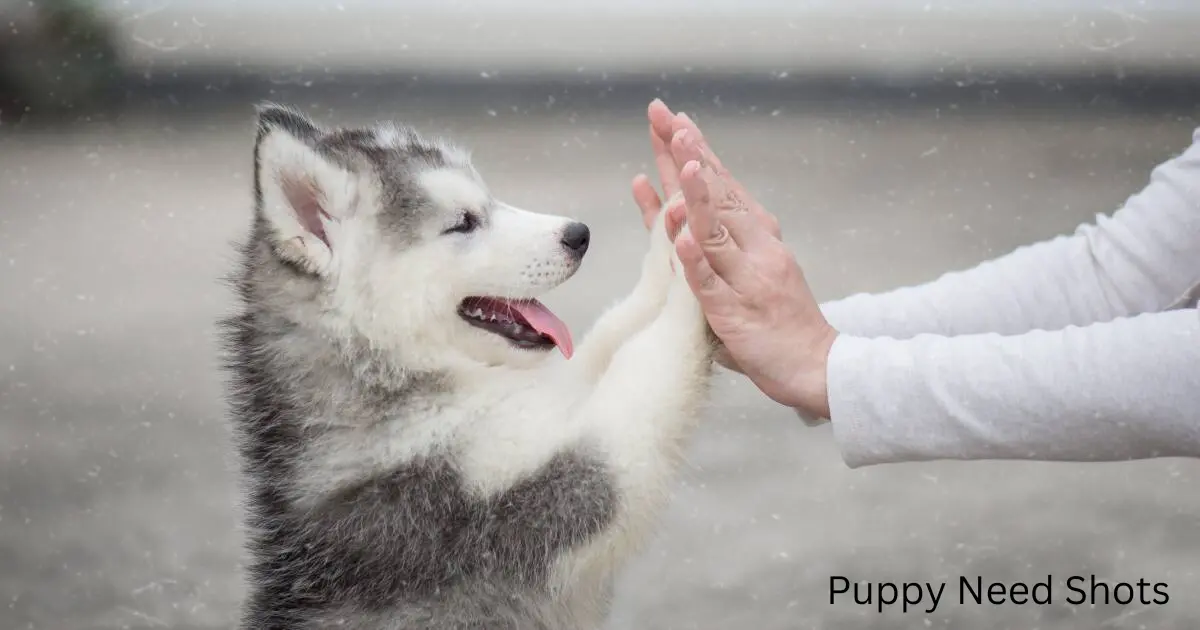How Many Shots Does a Puppy Need?
Shots needed for puppy. One of the most excitable moments in any passionate dog owner’s life is about to come when you welcome a home puppy. For a new pup owner, the delight and well-being of their furry friend demand some significant commitment from them. In the life of the domestic dog, vaccination is one of the essential things that you must do.
Vaccinations help guard your home dog against potentially fatal diseases and make certain a healthy one begins to exist. In this manual, we’ll spoil down the whole thing you need to apprehend about how many pictures your puppy needs, why they are critical, and the timeline for these vaccinations.
Understanding Puppy need shots of vaccine
Immunization is a major part of preventative healthcare for puppies. Through vaccinations, the immune system of a pup is commenced to make antibodies towards distinct ailments that could affect them. Through this, they benefit from security from difficult and often life-threatening sicknesses.
Just like human babies, dogs are born without evolved immune systems. Although they take a little immunity from their moms’ milk (also called maternal antibodies), this way of safety lasts simplest for a quick time earlier than it diminishes and leaves room for infections to goal the canine offspring. To make up for that, vaccines cater to these deficiencies to supply long-lasting immunity in puppies.
Core vs. Non-Core Vaccines: What’s the Difference?
Puppy vaccinations are commonly divided into businesses: core and non-core vaccinations.
Core Vaccines: These are the vaccines each puppy ought to get no matter what sort of surroundings they live in or whether or not they have a lively or sedentary life. The center vaccines guard in opposition to frequently encountered and potentially existence-threatening illnesses, which consist of:
- Canine Distemper
- Canine Parvovirus
- Canine Adenovirus (Hepatitis)
- Rabies
Non-Core Vaccines: These vaccines are not universally required but may be recommended based on the puppy’s risk of exposure. Factors like geographic vicinity, lifestyle, and the presence of other pets can affect whether your vet recommends these. Examples of non-core vaccines include:
- Bordetella (Kennel Cough)
- Leptospirosis
- Lyme Disease
- Canine Influenza Virus
The non-core vaccines that are required for your puppy will depend on its particular circumstances, and your veterinarian will assist you make that decision.
Puppy Vaccination Schedule

Vaccines aren’t given. Instead, they may be administered over a series of visits to make sure that your doggy builds up a sturdy immune response to the diseases.
The timing of the vaccinations is vital given that a puppy’s maternal antibodies can intervene with vaccine effectiveness if given too early. Below is a well-known vaccination timetable for dogs, though your veterinarian might regulate this depending on your doggy’s health, breed, and surroundings.
6-8 Weeks: First Shots For Puppy Vaccinations
At this early age, dogs are equipped to begin their vaccination series. The first vaccines they acquire are usually the center vaccines:
- Parvovirus
- Adenovirus (Hepatitis)
These vaccines may be combined into a single shot known as the DA2PP vaccine (Distemper, Adenovirus Type 2, Parvovirus, and Parainfluenza).
10-12 Weeks: Veccinaton
At this level, your pup will get a hold of boosters of the preliminary vaccines to reinforce their immunity. This is also while non-middle vaccines can be delivered, depending on their risk elements. Vaccines administered at this degree encompass:
- Distemper
- Parvovirus
- Adenovirus (Hepatitis)
- Leptospirosis (non-core)
- Bordetella (non-core)
14-16 Weeks: Final Core Vaccinations
Your domestic dog’s immune machine is maturing by this point, and they may want their final booster photographs. The vaccines given at some point in this era generally include:
- Distemper
- Parvovirus
- Adenovirus (Hepatitis)
- Rabies(This vaccine can be given as early as 12 weeks in a few states.)
In addition to being a plague, rabies vaccination is mandatory in most locations, making it a vital issue. Many states require puppies to be vaccinated against rabies before they can be certified.
12-16 Weeks: Non-Core Vaccines
This is likewise the time whilst non-middle vaccines are administered based totally on risk elements. Common non-center vaccines encompass:
- Bordetella This is vital if your doggy will be boarded or around other puppies regularly.
- Leptospirosis: Recommended if you live in a place in which your puppy may additionally come into touch with water contaminated by using the natural world.
- Lyme Disease: Considered in case you stay in a vicinity wherein ticks are widely wide-spread.
6 Months to 1 Year: Rabies Booster and Others
Some puppies might also require rabies booster shots for their puppy after three hundred and sixty-five days, relying on local policies and your vet’s recommendations. Non-core vaccines may additionally require follow-up doses at some point during this time.
Why Vaccination Timelines Matter
Properly following your doggy’s vaccination timetable is critical because vaccines are best when administered in the right instances. If you bypass or delay vaccinations, your pup may not have enough immunity to combat off ailment. This ought to leave them at risk of infections all through a crucial time in their improvement.
What to Expect After Your Puppy’s Shots
Most dogs tolerate vaccinations thoroughly, but it’s nonetheless important to monitor them for any aspect consequences, in particular after their first few pictures. Some not unusual, moderate aspect outcomes consist of:
- Lethargy or decreased activity
- Soreness at the injection site
- Mild fever
- Reduced appetite
These signs generally resolve within a day or two. However, in uncommon cases, dogs may also revel in a hypersensitivity to the vaccine, which can lead to symptoms consisting of swelling, hives, vomiting, or difficulty breathing. If you are aware of any of those signs and symptoms, contact your vet immediately.
Post-Vaccination Shots for Puppy Tips
- Rest: After a vaccine, your domestic dog would possibly feel a touch underneath the weather. Give them plenty of relaxation and keep away from strenuous activity for a day.
- Offer Comfort: If your doggy appears sore or worn out, offer them a comfortable, quiet area to relax. Ensure they have clean water and their preferred food close by.
- Monitor for Reactions: Monitor your puppy for any signs of a negative reaction. While most puppies experience no issues, it’s better to be cautious.
The Importance of Puppy Socialization
One task many new puppy proprietors face is balancing the need for vaccination with the importance of socialization. During the early weeks of a doggy’s lifestyle, socialization with different puppies and people is vital for their behavioral improvement. However, till your pup has completed their center vaccination collection, they may be nonetheless at hazard for infectious illnesses.
To stabilize these desires, recall controlled socialization with completely vaccinated, wholesome puppies in safe environments. Puppy instructions that require proof of vaccination are every other extremely good manner to socialise your puppy even as preserving their safety.
Continuing Vaccinations into Adulthood
Vaccinations don’t forestall after puppyhood. Your dog will want booster shots in the course of their life to make sure they remain included. Core vaccines are usually administered each one to a few years, depending on the vaccine and your vet’s recommendation. Non-center vaccines may additionally require periodic boosters based totally on your dog’s lifestyle and publicity dangers.
Conclusion
Vaccinations are an essential thing for your puppy’s fitness and proper well-being which is designed by a physician on how you are giving shots to your puppy. By ensuring your domestic dog receives the right shots at the right time, you assist guard them against potentially deadly illnesses and provide them with a pleasant beginning to a protracted, happy existence.
Work intently along with your veterinarian to expand a vaccination schedule tailored to your doggy’s desires, and do not forget that vaccines aren’t best for a person’s health—additionally, they help defend the wider network by stopping the spread of contagious diseases.
As a new puppy owner, staying informed and proactive approximately your doggy’s vaccinations will ensure that your puppy grows
you can also read this article
